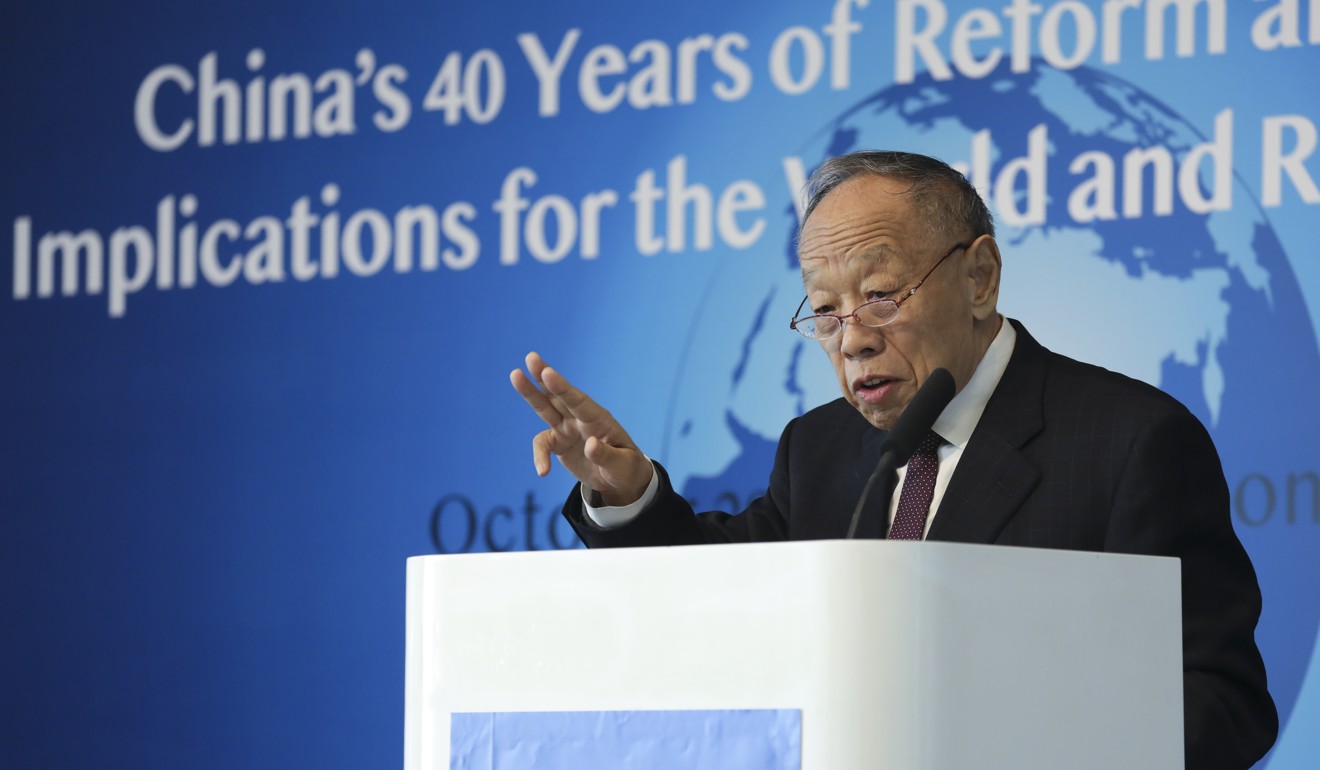
China’s future rests on ‘mending fences with the United States’
- Stable ties with the United States are good for China’s reform and opening up, analysts says
- Beijing ‘needs to maintain international support’ for its economic programme
China must find ways to repair its strained relations with its geopolitical rival the United States if Beijing is serious about deepening reforms, according to Chinese and American analysts.
At a seminar in Hong Kong looking back at China’s 40 years of opening up to the world, the observers voiced concerns that China’s further rise on the global stage could be affected by the protracted tensions between the two powers over trade and a litany of security and political conflicts.
Yuan Peng, president of the China Institutes of Contemporary International Relations, said there was a strong link between China’s rapid rise and the largely conflict-free development of bilateral ties in the past four decades.
“A stable US-China relationship is good for China’s reform and opening up, and deeper reform and opening would help stabilise bilateral ties,” Yuan said at the seminar co-organised by the Office of the Commissioner of the Ministry of Foreign Affairs in Hong Kong and the Better Hong Kong Foundation. The South China Morning Post is the media partner of the event.
Trade war forces companies to consider pulling operations out of both China and US
The normalisation of China-US relations, marked by the publication on December 16, 1978, of a joint communique to establish diplomatic ties between the US and China, happened just two days before the historic Third Plenum of the 11th Communist Party’s Central Committee, which was widely seen as the start of China’s reform and opening up.
“Without the formal normalisation of relations, it’d be very hard for us to conduct reform and opening up. Without the great decisions by Deng Xiaoping on reform and opening, the full normalisation of China-US relations would not be fulfilled,” Yuan said, referring to China’s late paramount leader.
He also said Washington should think about its response to Chinese President Xi Jinping’s new pledge to deepen reform and opening during a tour to Guangdong in the past week, which he believed could be an opportunity for both powers to ease their fraught relations.
Former Hong Kong chief executive Tung Chee-hwa told the seminar that China had succeeded with its reform and opening up since 1978 partly because the nation “draws upon any advanced experience from the rest of the world”, including from the United States.
“Some of my American friends often complained to me that the Chinese market is not open enough. I always ask them: do you know how many American companies are operating in China today? The answer is 68,000,” said Tung, now vice-chairman of the nation’s top political advisory body, the Chinese People’s Political Consultative Conference.
China’s reform and opening up can keep delivering ‘miracles’, says Xi Jinping
Harry Harding, a veteran American specialist on China from the University of Virginia, also said Beijing’s new push for opening and reform was critical not only for China but US-China relations as well.
“It’s important to note that compared to the situation 40 years ago, the challenge to this new wave of reform and opening comes as much from outside China as from within,” Harding said.
He said China’s success in the past 40 years was more of a political miracle than an economic one, reflecting the impressive ability of Chinese leaders, especially Deng, to break from past dogmas and to adopt pragmatic and sound economic policies.
Whether China could continue with its steady development in the coming decades would be a key test of Xi’s political will and leadership, Harding said.
“China may need yet another period of skilled political leadership, this time directed at both domestic and foreign constituencies who may be sceptical about some of the policies, and a second political miracle,” he said.
China at a crossroads: can Xi Jinping’s trip south get the economy moving?
Apart from remedying its economic woes, endemic corruption and environmental problems, China must maintain external support for its ambitious economic policies, he said. In particular, China had to look for ways towards fuller political liberalisation and reform and overcome the perception that it had had a free ride on the international economic order.
He said the Chinese government would need to do a better job in not only defining its policies, but of persuading others about them.
“It tends to rely on vague assertions of principles, such as the win-win economic relationship. It is a wonderful concept, but if you are perceived as winning a thousand and I am only winning 10, that’s still a win-win relationship, but you can’t expect me to be very happy about it,” he added.

However, former Chinese foreign minister Li Zhaoxing drew attention to a series of Xi’s recent remarks that underlined Beijing’s focus on tackling China’s internal problems and challenges and pursue self-reliance while deepening reform and opening up.
“The better China develops, the more the US and the world need China,” he said.
He lashed out at the US Vice-President Mike Pence’s speech at the Hudson Institute earlier this month, which China specialists read as the start of a new cold war with China.
Li said the speech laid bare the prevailing thinking in Washington which saw China as another Soviet Union that needed to be contained.
Harding said Washington would need to have an honest discussion with Beijing about the full nature of the new round of reform and opening, especially the extent to which China wanted to further open its doors to the rest of the world.
“We have some declarations and guiding principles which are promising, but we are looking to have a fuller explanation and details and we need evidence of its concrete implementation,” he said.


